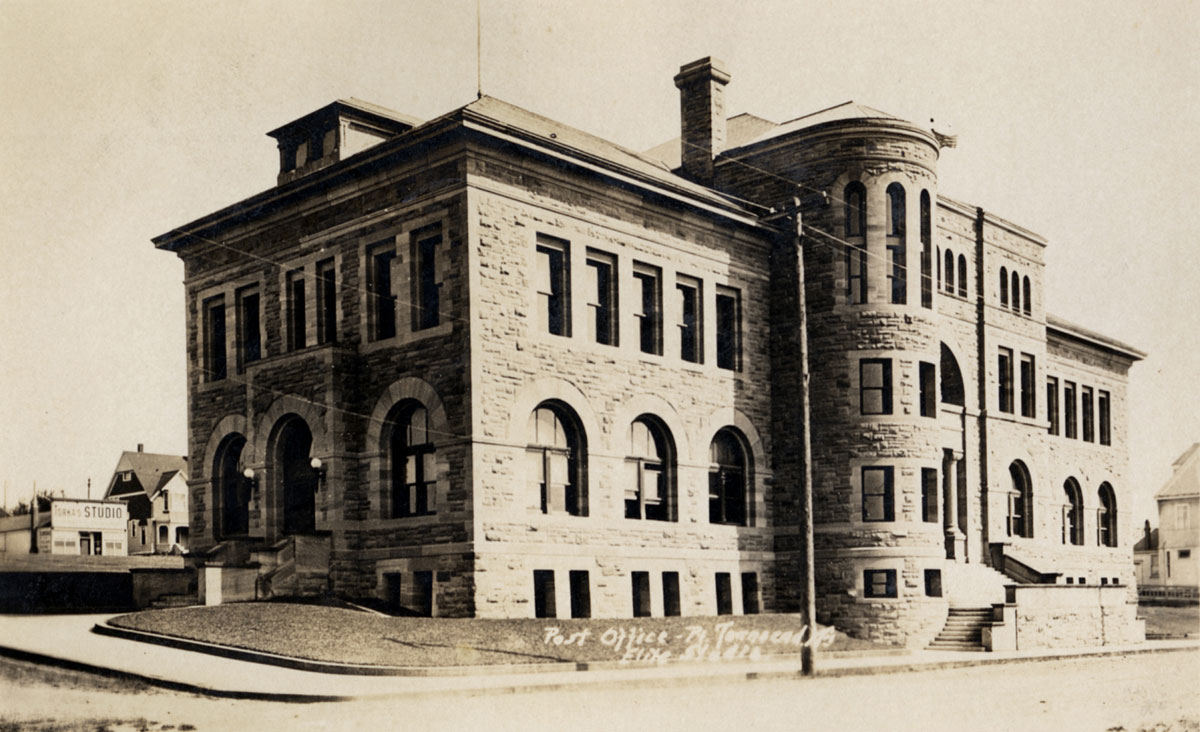SMUGGLING
An activity that has taken many forms over the last 150 years.
The cat-and-mouse conflict between smugglers and the customs agents who chased them was the stuff of local news and legend alike. Larry Kelly, an infamous smuggler, was known for smuggling opium and wine down from Victoria. He was eventually tracked down and caught by Customs Inspector Fred Dean.
Top image: Customs Inspector Fred Dean with a U.S Customs launch (JCHS 1995.209.1)
Was there smuggling in Port Townsend?
Until 1911 Port Townsend was a Customs Port of Entry for the U.S. Goods from foreign ports arriving in Puget Sound had to stop in Port Townsend and pay taxes. Avoiding customs was common among those carrying heavily taxed goods like liquor or opium. Smuggling people into Port Townsend became a lucrative business after the Exclusion Acts which restricted immigration from China.
One way to smuggle goods was to anchor north of what is now North Beach and west of modern Fort Worden. Goods and people were lowered into small boats and rowed stealthily to shore for transport inland. The ship then continued to port with the remaining, legitimate cargo.

U.S Customs House and Post Office (JCHS 2005.74.220)
Smuggling in the Port Townsend region took many forms over the last century and a half. Maritime smuggling ranged from casual expedience to organized industry. The many islands provided hideouts, secluded harbors, and caches for contraband. Tales abound of skilled sailors who knew the local waters and could navigate in near total darkness. The customs agents, in turn, had faster, well-armed ships, but were frequently at a loss to do more than watch for contraband after it had come ashore.
The earliest smugglers acted in opposition to “new” taxes established by the U.S. Federal Government exerting its authority to tax goods. The earliest merchant vessels had brought supplies from across the Pacific or down from British Columbia to the Washington Territory without restriction. With prosperity came taxes which the region’s earliest settlers chafed at paying. The customs house at Port Townsend was equipped and charged with enforcing tax collection, primarily by way of watching for smugglers.
Early customs offices were located downtown on Water Street and out at Point Hudson. In 1890, as Washington achieved statehood, the federal government built a redoubtable customs house up on the bluff overlooking the bay. The magnificent building enjoys a commanding view, just above the modern ferry terminal.
As authority and regulation became more commonplace, new rules inspired new crimes. Taxes on the transport and sale of alcohol and opium, for example, increased. The rewards for smuggling goods from British Columbia made smugglers notorious or famous. Many became rich for a time, though most were eventually caught, tried, and imprisoned.
More tragically, as the United States began its xenophobic discrimination against Chinese immigrants, smugglers began trafficking in human beings, often residents who had lived in the region for years but had needed to travel home. Like the current coyotes crossing the Mexican-American border, the lives of their cargo frequently mattered less than the fees collected.
Smuggling saw another boom in 1914, when Washington became one of the first US states to prohibit the sale of alcohol. The black market price of a case of Canadian whiskey justified considerable risk.
Port Townsend’s Boat Haven still serves as home to a US Coast Guard station and the US Coast Guard Cutter Osprey. Today’s duties are mainly search and rescue operations which can extend from Oregon to Alaska.
Learn More of Our History
